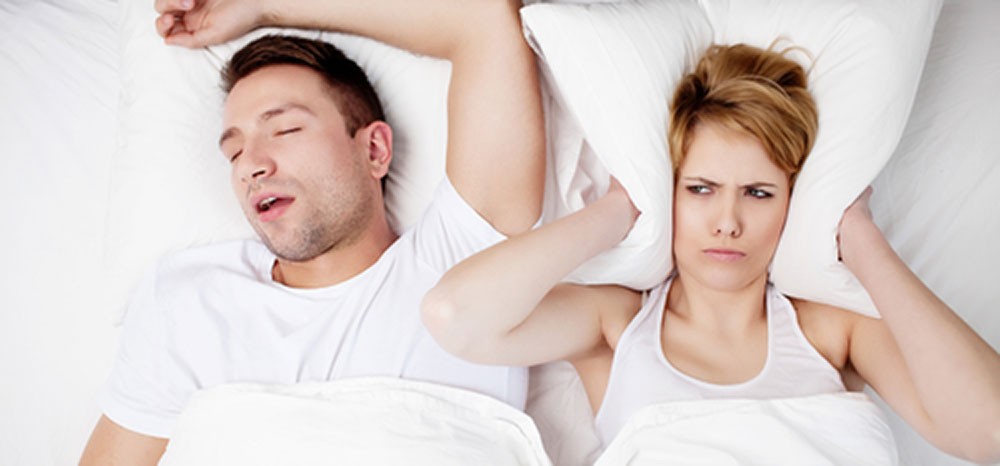Sleep apnea is a chronic condition that causes people to stop breathing at different times throughout their sleep cycles. Sleep apnea can increase the risk of developing heart disease, dementia, and a host of other diseases. Like many chronic conditions, the early stages of sleep apnea may not cause noticeable symptoms, and the condition can often progress to causing significant damage before you may even be aware you have the disorder.
The second thing you may not be aware of if you suffer from sleep apnea? That your dentist can help!
Understanding Sleep Apnea
There are two main types of sleep apnea: Obstructive sleep apnea and Central sleep apnea. Both types of sleep apnea are disruptive to sleep patterns, and people with untreated sleep apnea typically wake up feeling tired and lethargic. If left untreated, it can have a significant impact on your short-term and long-term health in both physical and mental capacities.
Obstructive Sleep Apnea. When your upper airway gets partially or entirely blocked while you sleep, it is referred to as obstructive sleep apnea. This obstruction causes your diaphragm and chest muscles to work harder to open up the blocked airway to draw air into your lungs. Obesity is a significant predictive aspect for those who suffer from obstructive sleep apnea. Treatment depends on how severe your apnea is, but for obstructive sleep apnea, weight reduction often gives patients beneficial results.
Central Sleep Apnea. During sleep, your breathing is disrupted regularly with central sleep apnea because of how your brain functions. Central sleep apnea is a result of your brain not telling your muscles to breathe during sleep, resulting in lack of respiratory movements. Central sleep apnea is typically associated with severe illness, particularly an illness where your lower brainstem is affected. Central sleep apnea is less common than obstructive sleep apnea and may occur as a result of other conditions, such as heart failure and stroke.
Diagnosing Your Sleep Apnea
Dental professionals are at the front of the line when it comes to being able to spot symptoms of sleep apnea early on. Many signs can be detected by merely looking into the airway during a routine examination. We ask patients about their sleep history and if they have observed any of the signs or symptoms.
Common “red flags” that your dental professional will be looking for during your routine dental visit are:
Acoustic Pharyngometer
If any of the signs of sleep apnea are present during the examination process, we use a pharyngometer device to measure the patient’s pharyngeal airway size. The Pharyngometer graphically displays the relationship between the cross-sectional area of the airway and the distance down the airway in centimeters. The Pharyngometer accomplishes these measurements using acoustic reflection technology, similar to a ship’s sonar.
Sound waves are projected down the airway and reflected out in such a way that the Pharyngometer software can analyze and quantify changes in the airways cross-sectional area. The entire test is minimally invasive, takes 2-5 minutes to complete, and helps us identify if you are a good candidate for a take-home sleep machine test.
Take-Home Sleep Machine Testing With ARES
Once identified as a good candidate, we will send the patient home with an Apnea Risk Evaluation System, or ARES, that charts, and records nine channels of sleep data. The data is then interpreted by a board-certified sleep physician who will determine the best treatment option for your specific sleep apnea.
Treatment Options For Patients With Sleep Apnea
The most common form of treatment is continuous positive airway pressure from a CPAP device. These devices blow a steady stream of pressurized air through a mask into the respiratory system. For moderate to severe sleep apnea patients, most sleep professionals will recommend CPAP therapy as a first-line treatment option.
For those with mild to moderate sleep apnea, a customized oral mouth appliance is configured using the data we have obtained through testing. A customized mouth appliance is different from a sore guard and is created to suit your particular needs.
We’ve Got You Covered
A customized oral mouthpiece is an excellent alternative for patients who struggle to use a CPAP machine, or just do not like using it. Many patients find dental devices to be more comfortable and tolerable to wear as opposed to masks.
All of the necessary tests are generously covered by medical insurance, meaning better quality sleep for you with no out-of-pocket costs.
The only thing you have to lose? Sleep.
Schedule your sleep apnea consultation with Kim Okamura DDS today.

